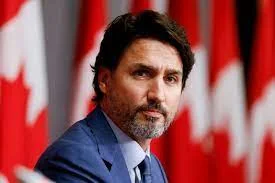Biden says his administration is trying to figure out the reason for immigrating to the United States
Washington : US President Joe Biden said his administration is committed to resolving the border crisis by “discovering” why thousands of immigrants left their homes for the United States in the first place.
"We do a lot of work with neighboring countries, there's a lot to do," Biden said during a meeting at the White House with Vice President Kamala Harris and a group of administrators.
Biden said that one of the main things that we have to do, in addition to making some changes, is to find out why people are leaving somewhere. to the border, to find himself in the desert in a country that does not want him, and does not speak its language.”
Biden noted the existence of gangs that profit from legal cross-border movements, but stressed that the reason for people leaving in the first place must be sought.
Harris, who was asked by Biden in March to deal with the border crisis, did not speak about her immigration efforts during the meeting.
The Biden administration has put forward a strategy to address the "root causes" of immigration from El Salvador, Guatemala and Honduras.
The root causes are divided into five pillars: tackling economic insecurity and inequality, fighting corruption, strengthening democratic governance, advancing the rule of law, promoting respect for human rights, labor rights and freedom of the press, and combating and preventing violence and crime.
Canada to appoint representative to fight Islamophobia, welcomed by PAK
Prime Minister Justin Trudeau tweeted that Islamophobia will not be accepted.
The Canadian government on Sunday, January 30 announced the appointment of a special representative to tackle Islamophobia in the country as part of its anti-racism plan. Prime Minister Justin Trudeau tweeted that "Islamophobia will not be accepted. We need to end this hatred and make our communities safer for Muslim Canadians." intend to appoint."
The decision came as Canada remembered the Quebec City mosque attack on January 29 and National Day of Remembrance of Action Against Islamophobia. In its statement, the government also reaffirmed its promise to condemn and deal with Islamophobia and hate-filled violence.
Pakistan PM Imran Khan welcomed the decision and tweeted, "I welcome Prime Minister Justin Trudeau's strong condemnation of Islamophobia and his plan to appoint a special representative to deal with this contemporary crisis." Let us join hands to end this menace.
In 2017, six worshipers were killed and five others were seriously injured when a 27-year-old man opened fire at a mosque during evening prayers on January 29.
The Ukraine crisis America received a written response from Russia and is studying the deployment of forces in Eastern Europe
The United States is in active discussions with allies in Eastern Europe about a possible deployment of US forces to the eastern side of NATO, while its State Department said it received written feedback from Russia after Washington provided written responses to Moscow's demands on Ukraine.
The Pentagon said on Monday it was in active discussions with eastern European allies about a possible deployment of US forces to the eastern flank of NATO, as Washington moved to reassure wary allies in the face of a Russian military build-up near Ukraine.
The Pentagon said any decisions about new troop movements would be independent of the roughly 8,500-strong US forces that were put on alert last week for a possible reinforcement of the NATO Rapid Reaction Force, in line with President Joe Biden's comments Friday about Possible near-term deployments to Eastern Europe.
Pentagon spokesman John Kirby said the forces that Biden was referring to on Friday could be redeployed from within Europe.
"We do a meticulous job of providing options to the commander-in-chief if he decides to do so...and in close consultation with de facto allies," Kirby added.
Separately, the US military last week put about 8,500 troops inside the United States on alert to be ready for deployment to Europe, largely aimed at mobilizing the ranks of the NATO Rapid Reaction Force if the coalition called them up.
On the other hand, a US State Department spokesman said on Monday that the United States had received written feedback from Russia after Washington submitted written responses last week to Moscow's demands regarding their confrontation over Ukraine.
"We can confirm that we have received written feedback from Russia. It would not be worth negotiating publicly, so we will leave it to Russia if they want to discuss their response," the spokesman said.
"We remain fully committed to dialogue to address these issues and will continue to consult closely with our allies and partners, including Ukraine," the spokesperson added.
Russia denies planning an invasion, but now that Moscow has caused a crisis by encircling Ukraine with forces from the north, east and south, Moscow is now invoking the Western reaction as evidence to support its narrative that Russia is the target rather than the provocateur of aggression.
Russia, which seized Crimea from Ukraine in 2014 and supports rebels fighting government forces in eastern Ukraine, has demanded comprehensive security guarantees, including a NATO pledge never to allow Ukraine to join.
A US State Department spokesman said that Russian Foreign Minister Sergei Lavrov is expected to speak by phone with US Secretary of State Anthony Blinken on Tuesday.
Biden stressed the importance of diplomatic efforts to avoid conflict, telling reporters in the Oval Office: "We continue to engage nonstop in diplomacy and de-escalation."







